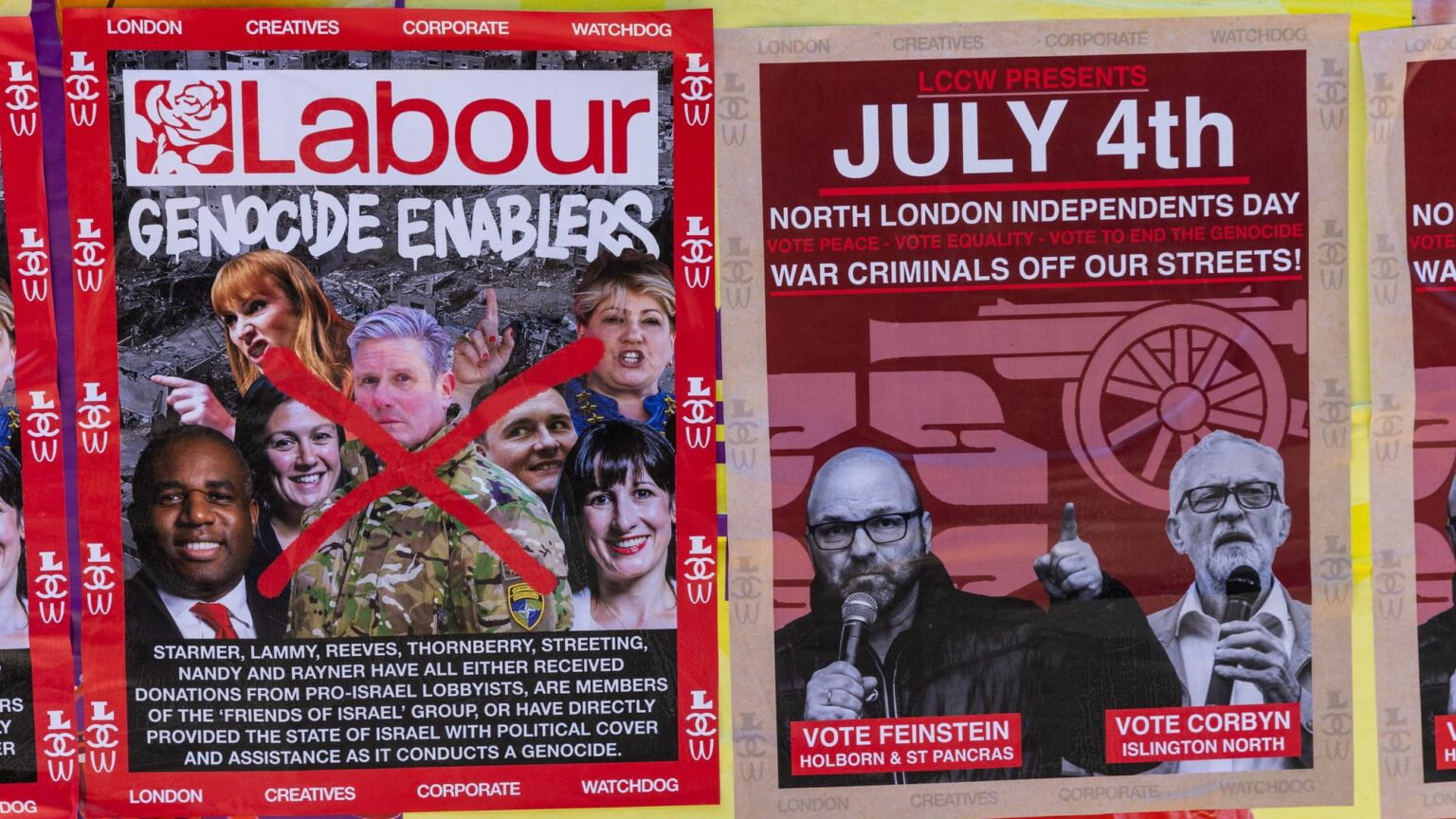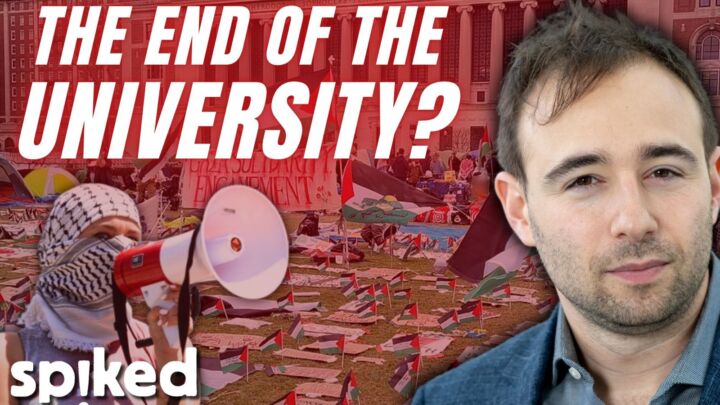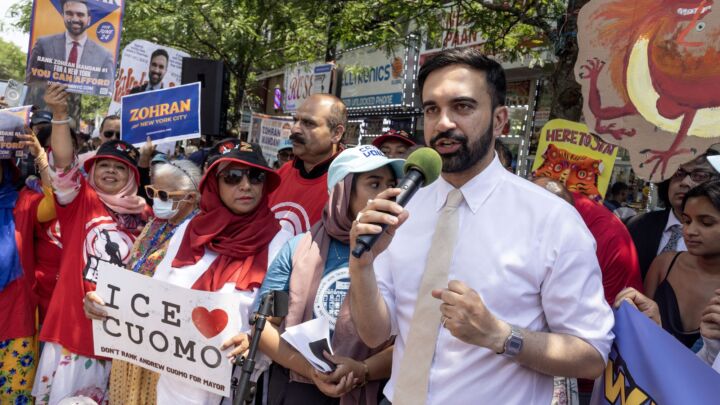The new sectarians
In 2024, ethnic and religious tribalism came bursting into British politics.

Want to read spiked ad-free? Become a spiked supporter.
During the course of 2024, we saw for the first time how religious tribalism and ethnic communalism is starting to reshape British parliamentary politics.
Labour may have enjoyed a landslide victory at the General Election, albeit on a very low turnout. But there were also plenty of reasons for it to be concerned – not least by the rising sectarianism within traditional, Labour-voting constituencies.
This was partly due to the influence of the Muslim Vote (TMV) campaign, which threw its weight behind pro-Palestine parliamentary candidates backing an immediate ceasefire in Gaza. As a result of TMV mobilisation, Labour lost several seats to independent candidates in constituencies with a relatively high proportion of Muslim voters.
The cause of Palestinian statehood, insofar as it is rooted in Palestinians’ right to self-determination, is a noble one. However, TMV is not a particularly noble organisation. Instead, it is associated with deeply questionable characters, and has endorsed multiple candidates with deeply dodgy views.
In May, it backed Owais Rajput, the Workers Party of Britain candidate in Leeds, who labelled Israel supporters ‘crypto Jews’ and accused them of abetting the ‘great satan king in Israhell’. Others backed by TMV have been responsible for disseminating conspiracy theories, such as that 7 October was an inside job and that the war in Gaza is primarily about oil and gas. TMV has also attempted to demonise its opponents, denouncing Muslims who canvass for Labour as ‘parasites’.
It is also worth noting that Shockat Adam, the TMV-backed independent MP for Leicester South, had Majid Freeman on his election campaign team. Shortly after the election, Freeman appeared in court on terror-related charges and was recently jailed over his role in a public-order incident during the Leicester riots in September 2022.
Indeed, Leicester provides a snapshot of the potential for tribal fragmentation of parts of the British electorate. Hindu-majority areas in Leicester now tend to vote overwhelmingly in favour of the Conservatives, while Muslim-majority areas tend, at least until recently, to vote Labour. So, on Leicester City Council, all three councillors for Hindu-dominated Belgrave are Conservative-affiliated Hindus, while in the Muslim-heavy ward of Stoneygate, all three councillors are Labour-affiliated Muslims.
Something similar appears to be happening in London. So while the Tories suffered a series of General Election losses elsewhere in the capital, Tory MP Bob Blackman’s hold on Harrow East remained firm. It is no coincidence that Harrow East has a large proportion of Indian-origin Hindus living within its boundaries. Blackman clearly knows what will play well among these voters. He has previously expressed support for Indian prime minister Narendra Modi’s Bharatiya Janata Party and took his oath in parliament on the Bhagavad Gita as well as the King James Bible.
In recent times, members of the Labour Party have quite rightly been criticised for fraternising with controversial Muslim organisations. This includes former leader Jeremy Corbyn who, in 2009, even referred to Islamist terror group Hamas as his ‘friends’. But could we now be seeing the creeping ‘Hindutvification’ of the Conservative Party?
There are notable yet still grim exceptions to this trend. During the General Election, Marco Longhi, former MP and Tory candidate for Dudley North, wrote a letter to ‘voters of the British Pakistani / Kashmiri community in Dudley’, in which his competitor’s Hindu surname was printed in bold, in italics and was underlined. The clear insinuation was that they should not trust his rival because of her Indian background.
Over the past few decades, the UK has become a successful multi-ethnic and multi-faith democracy. It is now arguably one of the best integrated and most tolerant societies in the world. Yet this is now being put at risk by the rise of religious identity politics and tribal sectarianism. We need to learn the political lessons of the past year and stand up to those trying to divide us along religious and ethnic lines.
Rakib Ehsan is the author of Beyond Grievance: What the Left Gets Wrong about Ethnic Minorities, which is available to order on Amazon.
Picture by: Getty.
Who funds spiked? You do
We are funded by you. And in this era of cancel culture and advertiser boycotts, we rely on your donations more than ever. Seventy per cent of our revenue comes from our readers’ donations – the vast majority giving just £5 per month. If you make a regular donation – of £5 a month or £50 a year – you can become a and enjoy:
–Ad-free reading
–Exclusive events
–Access to our comments section
It’s the best way to keep spiked going – and growing. Thank you!









Comments
Want to join the conversation?
Only spiked supporters and patrons, who donate regularly to us, can comment on our articles.